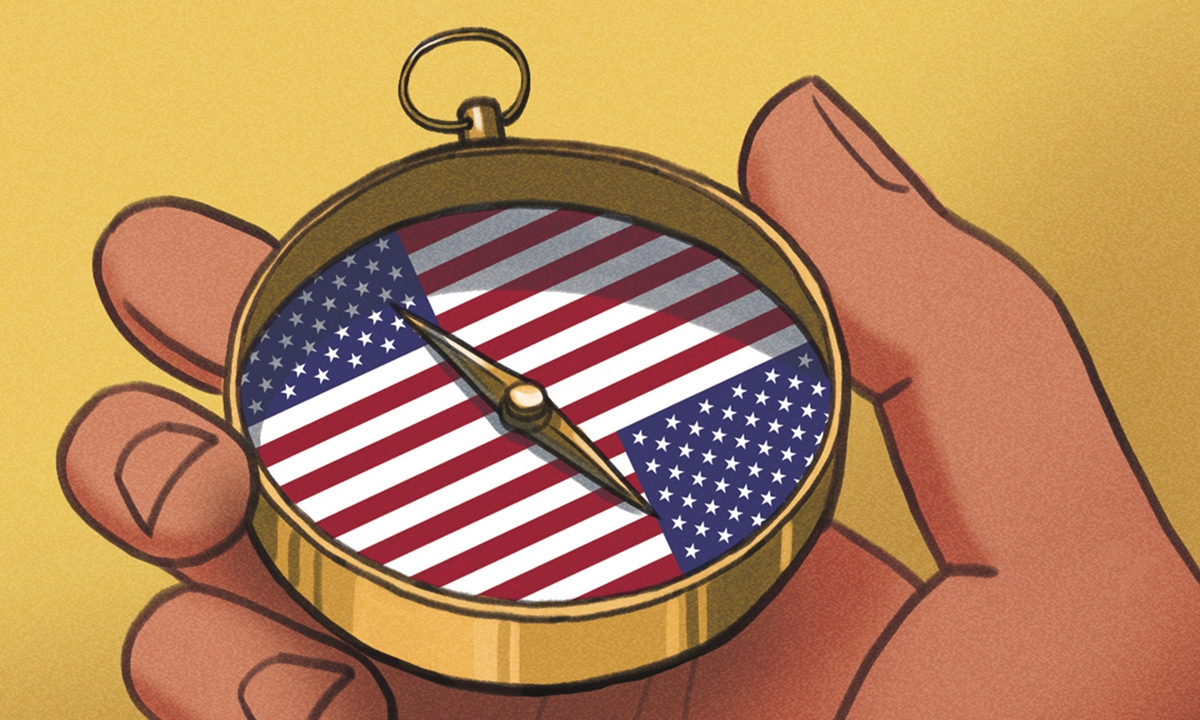Australia drifts into McCarthyism by targeting Chinese envoys, raiding journalists
By Zhou Fangyin Source: Global Times Published: 2020/9/16 23:56:05

Illustration: Liu Rui/GT
Australian police accessed the communications of top Chinese diplomats and named a Chinese consular official in a warrant, as part of an investigation into political interference, ABC News reported.
This media outlet reported that the investigation's main target is John Zhisen Zhang, a Chinese-Australian community leader and eyewear importer hired by New South Wales (NSW) Upper House Labor member of parliament, Shaoquett Moselmane, as a senior policy adviser since 2018. ABC News said Zhang has made no secret of his close relations with the Chinese embassy in Canberra and its Sydney consulate.
For any country, exchanges between embassies or consulates aboard and officials of the home countries are considered normal. Australian authorities' calling it "political interference" goes against the common practice of diplomacy. It embodies Australia's political stance toward China - it hopes to restrain China's official activities in Australia.
Several factors have contributed to Australia's move. First, US Secretary of State Mike Pompeo has repeatedly underlined the ideological differences between China and the West, as well as the so-called threat from the Communist Party of China. As a close ally of the US, Canberra intends to show Washington that it follows the latter's lead.
Furthermore, Canberra is not as confident in its democratic system as other members of the Five Eyes alliance, such as London and Ottawa. Australia is a country of immigration. In 2018, over 7 million of Australia's 25 million people were immigrants. Canberra admits Australia has more immigrants than any other major Western country, and is concerned that immigrants would not be sufficiently loyal to Australia.
Accessing the communications of top Chinese diplomats is absurd, and violates the Vienna Convention on Diplomatic Relations.
However, the move will not have a huge impact on China-Australia ties. Relations have already deteriorated significantly. Such a position will not be as serious as military conflicts. Nor will it incur huge losses to China's national interests. But it is absurd and inhumane. Apart from violating international law, it also goes against the so-called human rights which Western countries have been boasting about.
It was reported that Australian authorities raided the homes of four Chinese journalists and seized their electronics. Australian police also investigated Xu Jie, the Chinese consul-general in Brisbane, for allegedly inciting violent threats against an Australian university student. Why does Australia's China policy resemble McCarthyism?
Australia lacks the necessary domestic political constraints on irrational practices of Australia's intelligence department. In recent years, Washington has begun to disobey international rules and regulations. As one of the US' closest allies, Australia simply follows the US without carefully considering the consequences. If Canberra does not alter its tough China policy, if it carries out more absurd practices, it cannot rule out the possibility that China will make more robust countermeasures, and send a severe warning to Australia.
The Australia-China Relations Institute, a research institute based in Australia, said in a report released on Monday that China might apply more trade restrictions.
Apart from trade, China has advised citizens to avoid traveling to Australia and alerted Chinese students to be prudent in choosing to go or return to Australia for studies, citing risks of the COVID-19 pandemic and discrimination against Asian people there, which has a great impact on Australia. China has become the largest source of overseas students at universities in Australia. Universities face a big loss if Chinese students refuse to go to Australia.
Even if the Chinese government did not issue the travel alert, the Chinese people will be reluctant to go to Australia, as Australia's recent hysteria over China has spooked the Chinese people. Eventually, Australia will be the one to bear the loss.
Australia may have not been fully prepared to face the consequences. It will take more time to be aware of the impact of deteriorating China-Australia ties. Once Australians recognize the high price they have to pay, their rhetoric and moves toward China will be restrained.
Ties between Beijing and Canberra may be further deteriorated in the future, but only to some extent. Though Australia has taken measures to undermine its relations with China, it remains prudent on some crucial issues.
The US has repeatedly played the Taiwan card. Though Australia follows the US' lead in many areas, it has not followed the US on the Taiwan question, as it is clearly aware of its significance and the perils of provoking China on it.
The author is a professor at the Guangdong Research Institute for International Strategies. opinion@globaltimes.com.cn
Posted in: VIEWPOINT,OTHER REGIONS